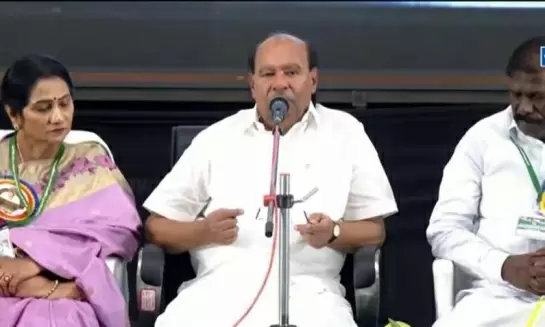Draft encryption policy withdrawn after public outcry
22-September-2015
Following a public outcry, the government made a U-turn on Tuesday, exempting social media sites and apps users, as also net banking and password-based e-commerce, from saving data for a minimum of 90 days from the date of transaction as under the draft encryption policy before withdrawing the draft altogether.
Opposition parties like Congress and Aam Admi Party (AAP) slammed the Bharatiya Janata Party-led government for the draft encryption policy even after it was withdrawn.
"There was concern about the draft in certain sections. When I went through the draft policy, I found that there were two-three words which were giving rise to unnecessary misgivings," said Communications and IT Minister Ravi Shankar Prasad.
"Hence I have directed the department to withdraw the draft policy, review it and then make it clear that on whom it is applicable and on whom it is not," he said.
"I want to make one thing clear, the people who use the social media - they will be out of the ambit of encryption. It concerns those who encrypt their messages," he added.
Earlier in the day, in a clarification to what it called as Draft National Encryption Policy, the department of electronics and Information Technology said the following categories of encryption products were being exempted from its purview:
- The mass use encryption products, which are currently being used in web aplications, social media sites, and social media applications such as Whatsapp, Facebook, Twitter, etc.
- SSL/TLS (Secure Sockets Layer/ Transport Layer Security) encryption products being used in Internet-banking and payment gateways as directed by the Reserve Bank of India (RBI).
- SSL/TLS encryption products being used for e-commerce and password-based transactions.
"I want to make it very clear this draft policy is not the final view of the government. Our government is in favour of freedom of social media. But it is also a truth that cyber commerce, cyber dialogue and administrative work through cyber space has increased in the country," Prasad said.
"In countries across the world, it has been felt that there should be an encryption policy. Hence an expert committee deliberated that there should be an encryption policy in India," he added.
Earlier, the draft policy had required every message that is sent through e-mail, Whatsapp or SMS to be stored in plain text format for 90 days from the date of transaction and made available to the law enforcement agencies on demand.
The draft proposed to introduce a New Encryption Policy under Section 84A of the Information Technology Act, 2000, and called for public comments by October 16.
"On demand, the user shall be able to reproduce the same plain text and encrypted text pairs using the software or hardware used to produce the encrypted text from the given plain text," it had said.
"Such plain text information shall be stored by the user or organisation or agency for 90 days from the date of transaction and made available to law enforcement agencies as and when demanded in line with the provisions of the laws of the country," it added.
Reacting to the draft policy, the Congress accused the government of trying to encroach upon the right to privacy of communication of the common people.
"Subjugation of individual freedom, surveillance of citizen and suppression of the dissent have emerged as the DNA of the Narendra Modi-led NDA government," said Congress spokesperson Randeep Surjewala.
He said it was a "sinister attempt" by the central government to curb individual liberty.
"Draft policy on encryption of department of electronic and information technology (was) first circulated, then amended and now withdrawn with a rider of re-issuing it, is a totalitarian, misconceived and a failed attempt of the Modi government to override all sense of individual," he added.
Similarly, the AAP also took a dig at the NDA government, tweeting: "We were shocked to read to the encryption policy. Why is this government interested in reading private Whatsapp messages?"
"Encryption Policy is a blatant and yet another attack on the freedoms of the citizens of our county," it added. - IANS
PM Modi Applauds Maiden Voyage of Stitched-Ship INSV Kaundinya From Porbandar to Oman
Unnao Rape Case: 'Don't Let Hate Bury The Truth', Pleads Sengar's Daughter In Viral Open Letter
PMK Leader Dr Ramadoss Says Alliance Decision Soon, Launches Sharp Attack On Son Anbumani
Four Juveniles Held for Brutal Sickle Attack on Man Near Tiruttani Railway Station
Bangladesh Army Watches As Yunus Administration Grapples With Violence, Chaos









